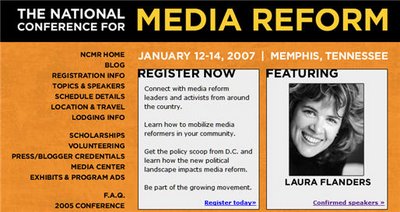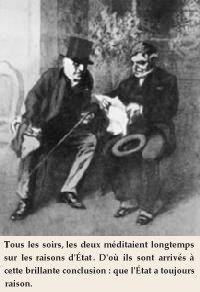[note: I've been wrestling with this one for a while, and am still not done with it. changes may occur.]
Given the astounding number of galaxies and potential worlds arrayed overhead, the complexities of life on earth and the advances in our ethical discourse over the last 2,000 years, the world's religions offer a view of reality that is now so utterly impoverished as to scarcely constitute a view of reality at all.
That's Sam Harris on
Edge, responding to an unscented powder puff by Nicholas Kristof in the Times. Times "Select." Readable
here without unconscionable fee.
Kristof measures God the way newspapers employ polls to gauge the dimensions of political candidates. He find irreligious intolerance quite as disturbing to his peace of mind as the religious variety. He would like everybody to
play nice.
One could simply ignore Kristof, as several of the commenters at Dawkins' site recommend.
goddogit, for example, muses:
I'd get upset, but this guy is the classic ineffectual kind of cat box liner that the NYT uses to maintain its thickness, in both senses. His opinions are so trifling, yet so predictable in their method of pandering, he really should be a sportswriter.
Many atheists believe the Times is composed of unimpeachable objectivity, fairness, and news sense. Enlightenment fundamentalism indeed.
Pace Kristof, there's something at work in Harris's comment that isn't just tone or manner. There's a compacting of "the world's religions" with a certain USian segment that practices a straighened interpretive approach to a particular publication, i.e., the Bible. What seems impoverished here are the premises of Harris's attack language, not the ostensible object of his attack.
For the sake of argument, let's assume all the world's religions derive from the study of a single sacred text, as Harris prefers, and let's call it the Bible. If so, it behooves to read the text. Leave aside fundamentalist readings, give it the benefit of your very own attention. Even just
Genesis. What's going on in there is anything but simple; there's an unfolding of a world view radically distinct from whatever else has survived from yore, an original vision of time and the place of the human and the workings of the human in time. It's quite a tale, pocked with remembered moments fraught with ancient memory lapses looming out of vastnesses of time and space. There's an enigmatic benightedness that is familar and contemporary, peopled by vivid and diverse actors, of whom God is but one player.
It 's a text that knows a lot about the problems of knowing. For something supposedly written by a guiding godhead, it's rife with illogic, with narrative gaps that might or might not be gaffs, difficult to parse and perplexing scenes, actions, characters and events that nudge the problem of intelligibility into the foreground, so that the riddling character of the signifier -- the shadowy, broken, paratactic and irregular texture of the telling -- is inseparable from the burden of the tale.
Genesis holds up as literature. Personally I'm always enthralled up to that point in
Exodus when we hit the the Japanese instruction manual on how to assemble the Tabernacle. Twice. Where is a competent technical writer when you need one? But that's just me. To Sam Harris I'd say, after spending some time with Genesis, have a look at Erich Auerbach's
Mimesis - the first chapter anyways, and perhaps Robert Alter's
commentaries. Then ask yourself whether you're taking on the Bible, or rather some insipid sliver of a reading of it which you then like a good fundamentalist assume is the only possible way to interpret the text.
All of which merely goes to suggest that Harris's choosing to unleash his whoopass container upon poor Kristof in hopes of wresting the Tolerance Merit Badge back to his side of the ledger is somewhat self-defeating. If there is intolerance here, it resides in Harris's niggardly sense of what a text is -- in his resistance to exploring how the act of intepretation can open into something a bit more complicated than
Half of the American population believes that the universe is 6,000 years old.
Come to think of it, Genesis itself is full of folks like Joseph's brothers getting into serious trouble by refusing to entertain the possibility of other than simplistic readings.
Harris apparently wishes to equate one benighted and politicized strand of atrophied USian text abuse with the Bible
in toto; would he find it equally plausible to reduce all scientific endeavor to Adam Felber's
account of the World's Largest Molecule? Would he enjoy mindless readings of his own
books?
For all intents and purposes, as
AKMA has
argued, we live amid contesting readings, all partial, all incomplete, among which some single text is pretty much nowhere to be found. If Harris truly wished to impress upon us his
genuine concern for the future of civilization, he might begin by allowing for the myriad unimaginable acts of interpretation that fall between a text and the communities generated by its readings. A tolerance of that uncontrollable genesis by which certain texts extend their demiurgic powers across time and space, in advance of the lives they deform.












